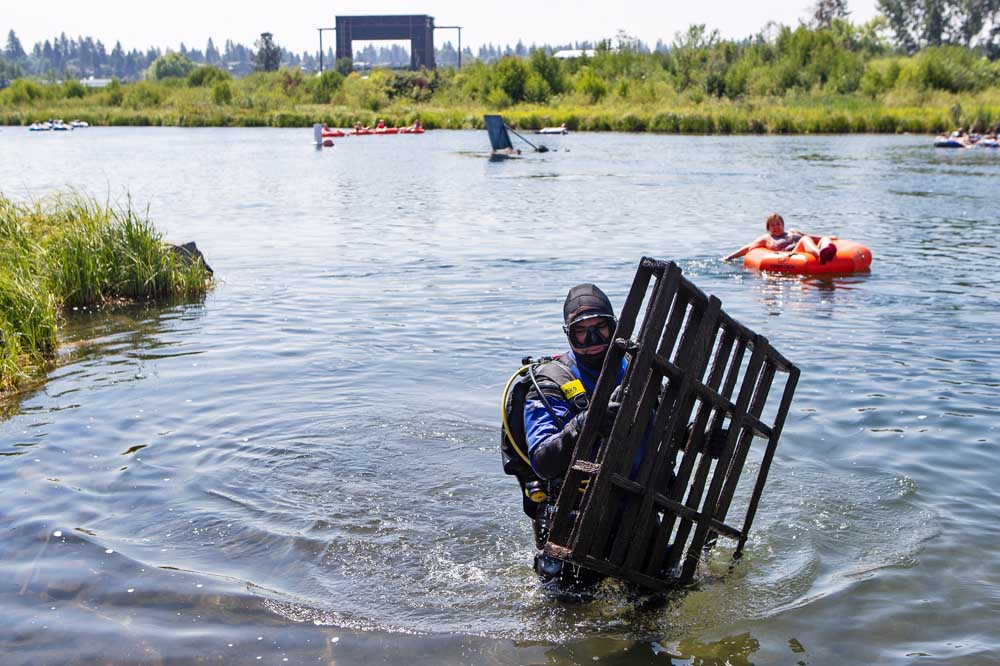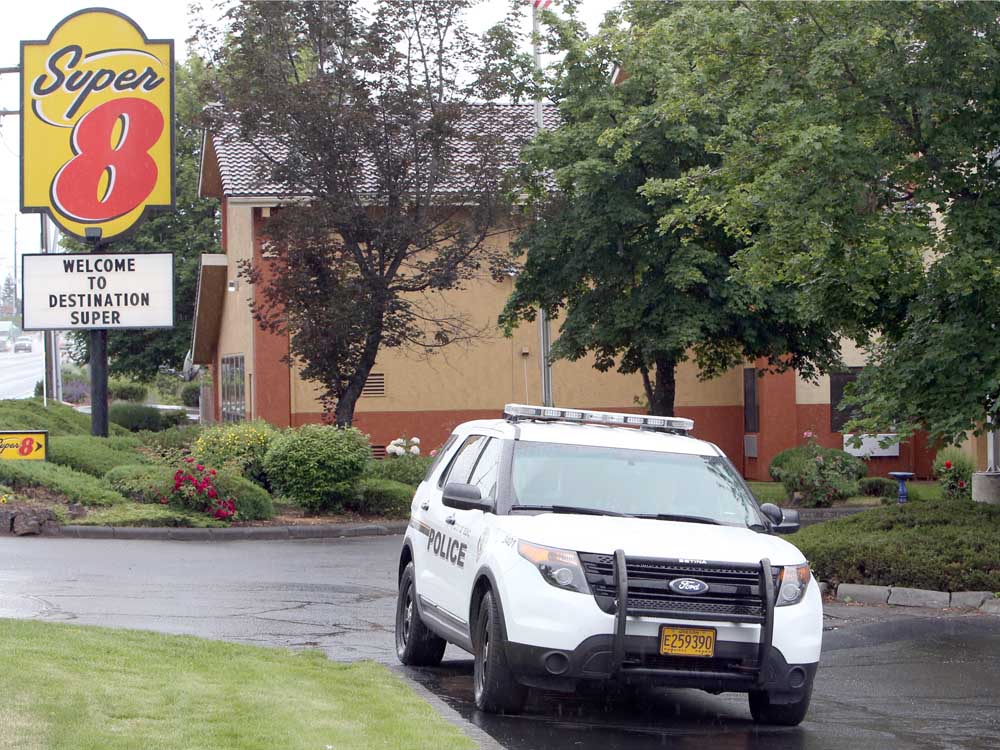Annual Deschutes River Cleanup to tug up trash this weekend
Published 5:00 am Friday, July 26, 2024

- Diver Mike Mawdsley carries a pallet he retrieved out of the Deschutes River during the 2023 cleanup.
When the Deschutes River Cleanup was first born, volunteers pulled heavy pieces of lumber, railroad ties and rusted metal from the water around the Old Mill.
The river’s depths reveal a different era today, with sunken sunglasses, beer cans, GoPros and even capsized drones.
This weekend marks the 28th annual Deschutes River Cleanup, first established in 1995, during which hundreds of volunteers pitch in to comb through the river to pull out whatever has been left behind, according to Kolleen Miller, education director of Upper Deschutes Watershed Council. The event began as a partnership between the U.S. Forest Service and city of Bend after they identified the need to repair sensitive streamside areas.
In 1997, Upper Deschutes Watershed Council joined in, and Central Oregon Diving, a local dive shop, joined shortly after. In those days, it was common to find about 25 people at a river cleanup. This year, 220 people have already signed up and there will likely be more, said Miller.
When the mill was operating, it was considered trespassing to float the Deschutes River through what is now known as the Old Mill District, according to Kelly Cannon-Miller, Deschutes Historical Museum executive director. Though it’s unclear when the area became popular for floating — likely sometime around 2005, said Cannon-Miller — cleanup groups began to focus on the river corridor through Bend to curtail floaters’ waste, Miller said.
Now, roughly 250,000 river floaters each summer on the Deschutes River, unwanted items tag along with them. Last year, volunteers retrieved 2,400 pounds of garbage from the river.
“What we’re hoping for is that garbage stops ending up in the river in the first place,” Miller said. “Our goal is to get people involved to raise awareness about the health of the river, get them thinking about the choices they’re making when they’re recreating on and around the river and hopefully we won’t have to be pulling garbage out of the river a few years from now.”
The cleanup will begin at 9 a.m. Saturday and volunteers will extract trash and weeds from the riverbank at six different stewardship sites: Farewell Bend Park, First Street Trail, Sunriver, La Pine State Park, Riverbend Park and Tumalo State Park. Meanwhile, 20 scuba divers will dive for garbage, and 50 paddlers will ferry the trash to the riverbank.
The amount of refuse fluctuates from year to year, Miller said. It depends on the visibility of the water for scuba divers and the amount of divers that sign up for the event.
“You never know what you’re going to find,” said Jonathan Ingram, diving instructor at Central Oregon Diving and five-year volunteer of the annual cleanup.
While it’s fun, it’s also a challenging dive because of the current. It’s disheartening to see how many beer cans divers end up dredging up, Ingram said.
Last year, divers removed about 20 sunglasses, over 100 beer cans, eight to 10 phones, a few dollars in change, bags of dog poop, clothing, shoes, cinder blocks and even dumbbells from the river, said Sarah Clark, owner of Central Oregon Diving. Miller added chairs from Red Robin, a wood stove and a wedding ring.
“I’m hoping to find something that I’ve never found before,” Ingram said. “Hopefully something unique this year.”
Volunteers on the riverbank will have the chance to pull out nonnative, noxious and invasive species of weeds like lamb’s ear, spotted knapweed and mustard plant, to name a few.
One thing volunteers can’t extract is sunscreen, which creates an oil slick over the water’s surface and plants underneath.
“Sunscreen is completely destroying the river,” Clark said. “You’re wrecking your river…people don’t think about that.”
Instead, Clark suggests using biodegradable reef-safe sunscreen when heading into any body of water.
“The river truly is a habitat for fish and wildlife,” Miller said. “Our goal really is to educate and inform students as well as community members about the health of the river so they can just become informed and educated and hopefully inspired to protect the river for fish and wildlife habitat all the time.”
Editor’s note: This article has been corrected. The original version misstated the number of people who float the river each summer. The Bulletin regrets the error.







